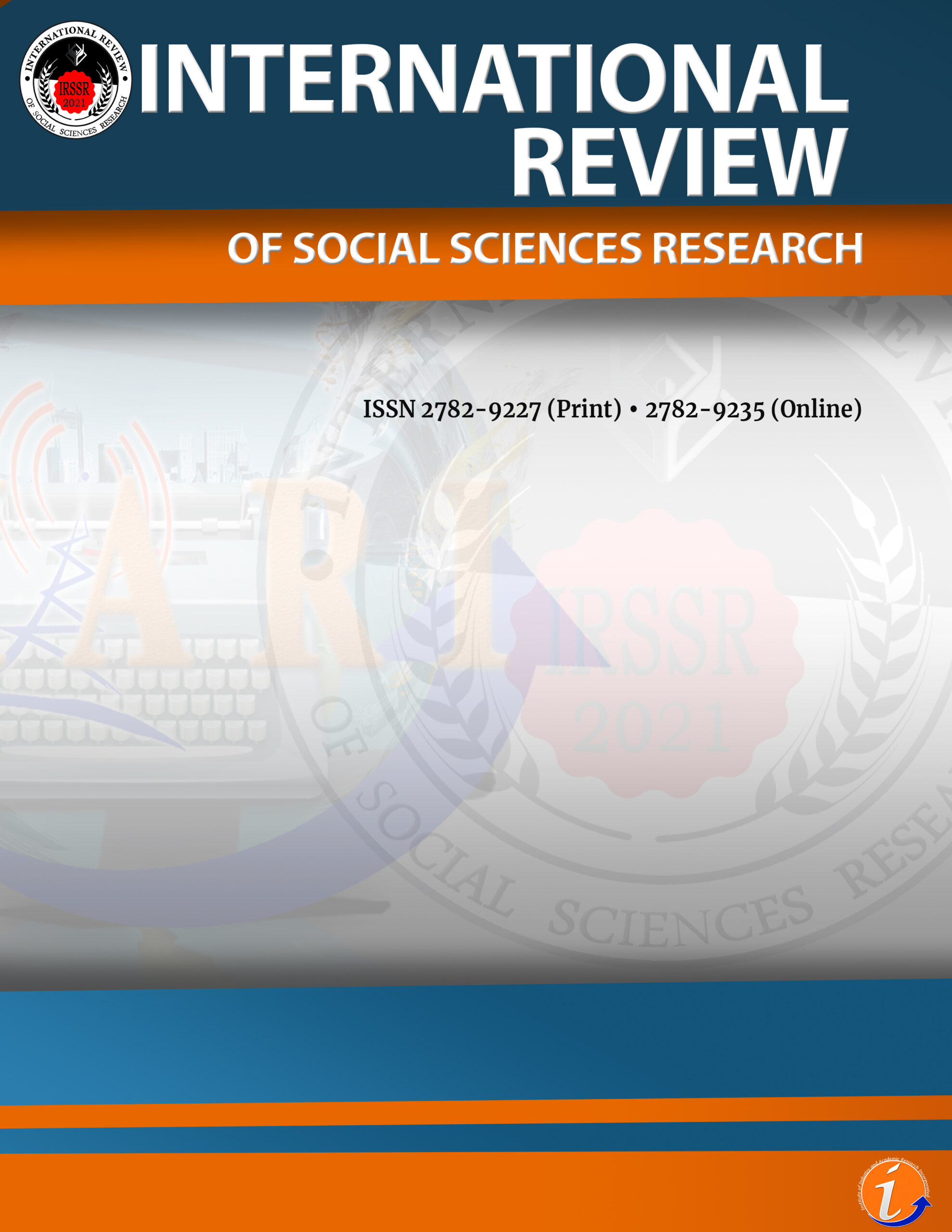The study determined the personality traits and the level of non-suicidal injury (NSSI) among the young adolescents of Tiaong, Quezon in the Philippines. A descriptive-correlational research design was used with 70 participants selected through purposive sampling technique. The participants were mostly 18 years old, women, first born children and Roman Catholic. The questionnaire was divided into three parts: respondents’ profile as to age, gender, religion, and birth order; the NSSI to assess the self-harm inventory and Big Five Inventory to describe the respondents’ personality. Results revealed the respondents’ personality with high level of openness to new experience but with severe level of NSSI. It was further revealed that only religion has a significant relationship to NSSI. The results imply that adolescents open to new experience have tendencies to commit non-suicidal self-injury.
non-suicidal self injury (NSSI), personality traits, young adolescent, non-suicidal, self-injury
Kayla Camille M. Agos. BS Psychology student, Laguna State Polytechnic University, Philippines
Daniela Tricia D. Batino. BS Psychology student, Laguna State Polytechnic University, Philippines
Portia R. Marasigan. Associate Professor 5, Laguna State Polytechnic University, Philippines
Ackerman, C. (2021). Big Five Personality Traits: The OCEAN Model Explained. Positive Psychology. https://positivepsychology.com/big-five-personality-theory.
Allroggen, Grandclerc, S., De Labrouhe, D., Spodenkiewicz, M., Lachal, J., Moro, R. (2014) Apr 18. Relations between Nonsuicidal Self-Injury and Suicidal Behavior in Adolescence: A Systematic Review. PLoS One. 11(4):e0153760. doi: 10.1371/journal.pone.0153760.
Barrocas, A. L., Hankin, B. L., Young, J. F., & Abela, J. R. (2012). Rates of nonsuicidal self-injury in youth: age, sex, and behavioral methods in a community sample. Pediatrics, 130(1), 39-45.
Busser, J., Buser, T. Rutt, C. (2017). Nonsuicidal Self-Injury and Spiritual/Religious Coping. 39 (2): 132–148.
Che, O., Bogg, T., Roberts, B.W. (2018) Jun. The case for conscientiousness: evidence and implications for a personality trait marker of health and Ann Behav Med. 45(3):278-88. doi: 10.1007/s12160-012-9454-6. PMID: 23225322; PMCID: PMC3604184.
Cherry, K .(2010).The Big Five Personality Traits.Very Well Mind. https://www.verywellmind.com/the-big-five-personality-dimensions-2795422
Deshong, X., García Herrero, A.M., Sánchez-Meca, J., Álvarez Muñoz, F.J., Rubio-Aparicio, M., Navarro-Mateu, F. ( 2015) Aug. Neuroticismo e ideas suicidas: unestudio meta-analítico [Neuroticism and suicidal thoughts: a meta- analytic study]. Rev Esp Salud Publica. 92:e201808049. Spanish. PMID: 30104562
Goodyear, C., Lockwood, J., Daley, D., Townsend, E., Sayal K. (2013) Apr .Impulsivity and self-harm in adolescence: a systematic review. Eur Child Adolesc Psychiatry. 26(4):387-402. doi: 10.1007/s00787-016-0915-5. Epub 2014 Nov 5. PMID: 27815757; PMCID: PMC5364241.
Greenstein,L.(2016),December 16.The Mental Health Benefits of Religion and https://www.nami.org/Blogs/NAMI-Blog/December-2016/The- Mental- Health-Benefits-of-Religion-Spiritual
Holzman, P. S.(2020),February 24. Personality. Encyclopedia Britannica. https://www.britannica.com/topic/personality
Klonsky, E. D., Victor, S. E., Saffer, B. Y. (2014). Nonsuicidal self-injury: What we know, and what we need to know.
Liang, V., Laghi, F., Terrinoni, A., Cerutti, R., Fantini, F., Galosi, S., Ferrara, M., Bosco, F.M. (2014) Jul. Theory of mind in non-suicidal self-Injury (NSSI) Conscious Cogn. 43:38-47. doi: 10.1016/j.concog.2016.05.004. Epub 2016 May 26. PMID: 27236355.
Nguyen, V., Szcześniak, M., Rodzeń, W., Malinowska, A., Kroplewski, Z. (2013) Nov .Big Five Personality Traits and Gratitude: The Role of Emotional Intelligence. Psychol Res Behav Manag.13:977-988. doi: 2147/PRBM.S268643. PMID: 33204190; PMCID: PMC7667173.
Pargament, K. (2013). What role do religion and spirituality play in mentalhealth?http://www.apa.org/
Salmon, N., Deyoung, C.G., Carey, B.E., Krueger, R.F., Ross, S.R. (2012). Ten aspects of the Big Five in the Personality Inventory for DSM-5. Personal 7(2):113-23. doi: 10.1037/per0000170. Epub 2013 Jan 25. PMID: 27032017; PMCID: PMC4818974.
Sansone, R, Wiederman M. (2015).Religiosity/spirituality: Relationships with non-suicidal self-harm behaviors and attempted suicide. Int J Soc Psychiatry. Dec;61(8):762-7. doi: 10.1177/0020764015579738. Epub 2015 Apr 10. PMID:
Schacter, B., Vartanian, O., Wertz, C.J., Flores, R.A., Beatty, E.L., Smith, I., Blackler, K., Lam, Q., Jung, R.E. (2011). Structural correlates of Openness and Intellect: Implications for the contribution of personality to creativity. Hum Brain Mapp. 39(7):2987-2996. doi: 10.1002/hbm.24054. Epub 2014 Apr PMID: 29656437; PMCID: PMC6866609.
Widiger, M., Rappaport, L.M., Flint, J., Kendler, K.S. (2017). Clarifying the role of neuroticism in suicidal ideation and suicide attempt among women with major depressive disorder. ;47(13):2334-2344. doi: 10.1017/S003329171700085X. Epub 2017 Apr 11. PMID: 28397619; PMCID: PMC5595639.
Zetterquist, R., Rasmussen, S., Hawton, K., Philpott-Morgan, S., O’connor, R.C. (2018). Why Do Adolescents Self-Harm? Crisis. 37(3):176-83. doi:10.1027/0227-5910/a000369. Epub 2019 Feb 2. PMID: 26831210.
Cite this article:
Agos, K.M., Batino, D.D. & Marasigan, P.R. (2021). Personality traits and non-suicidal self-injury among young adolescents. International Review of Social Sciences Research, 1(4), 23-43. https://doi.org/10.53378/352084
License:
![]()
This work is licensed under a Creative Commons Attribution (CC BY 4.0) International License.










